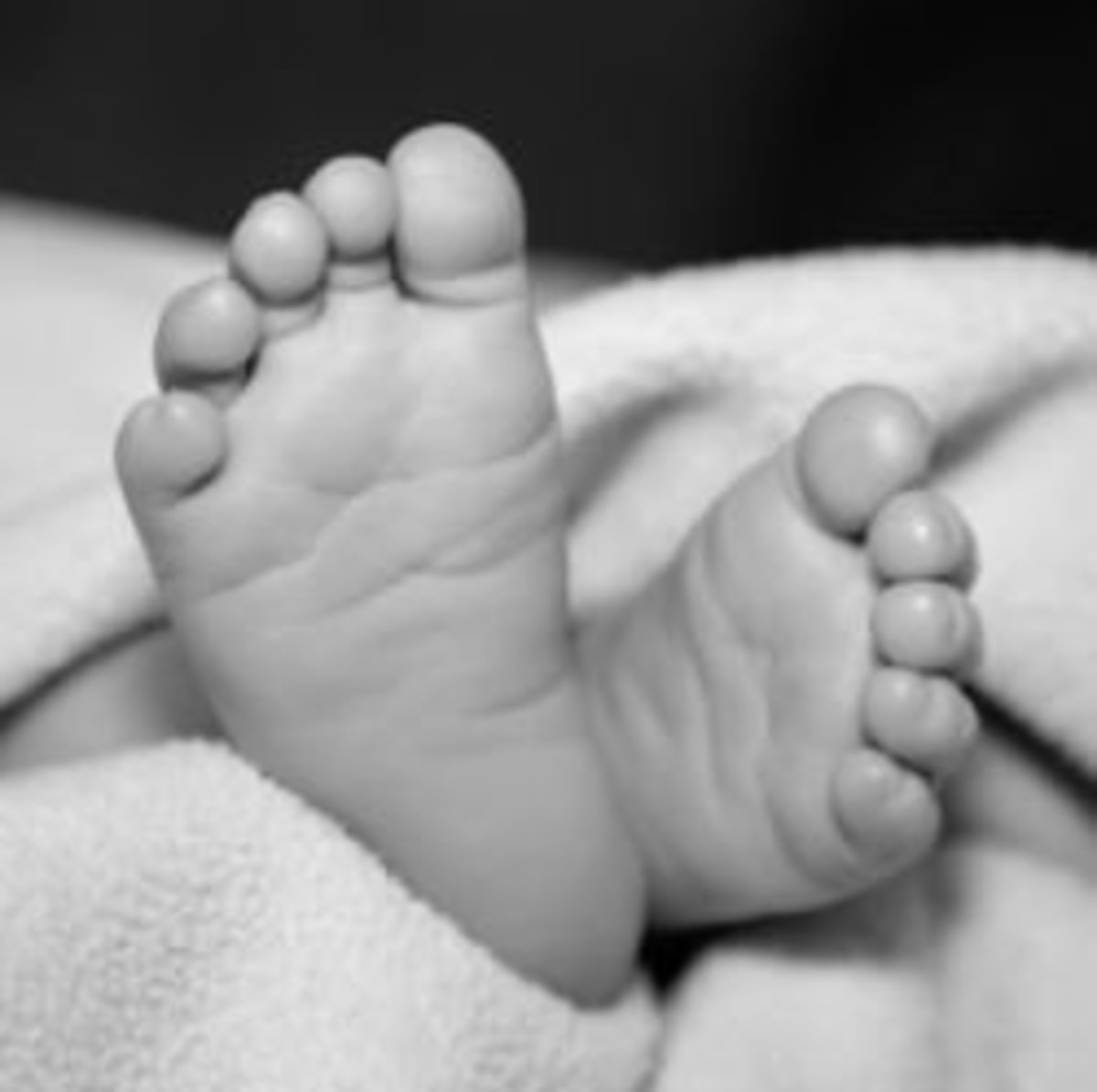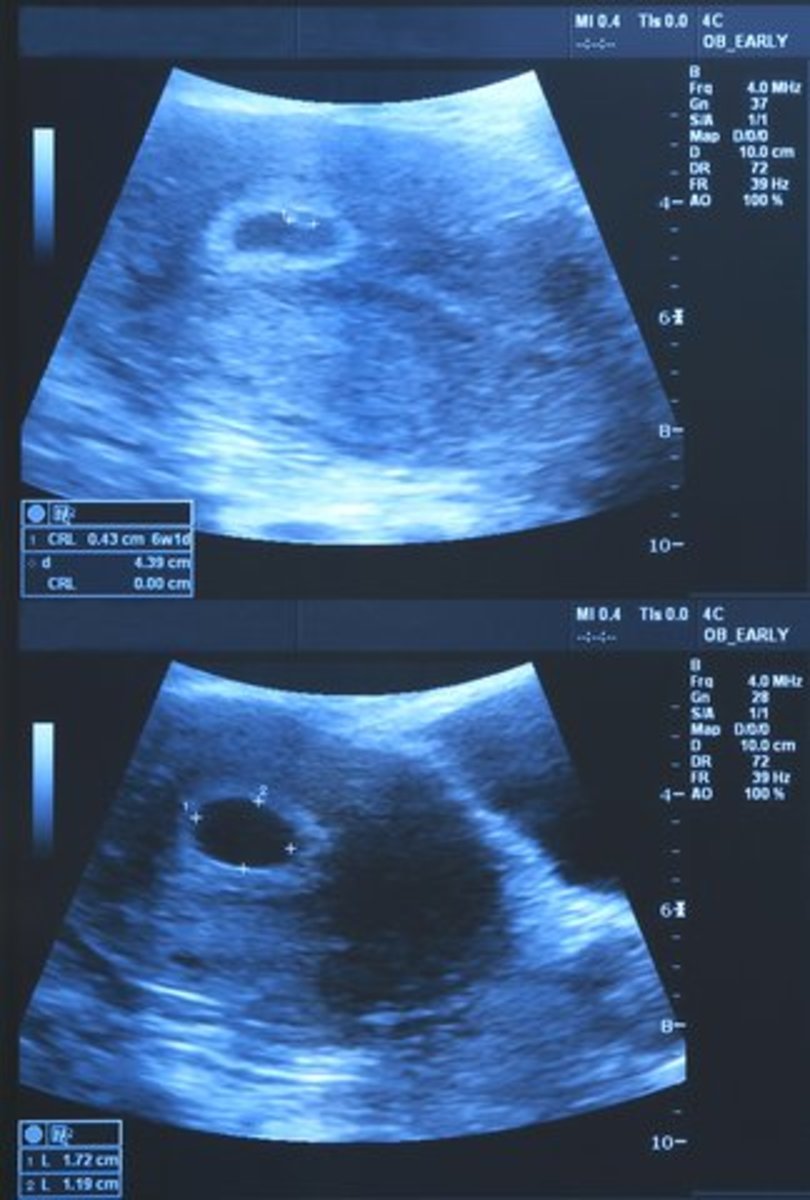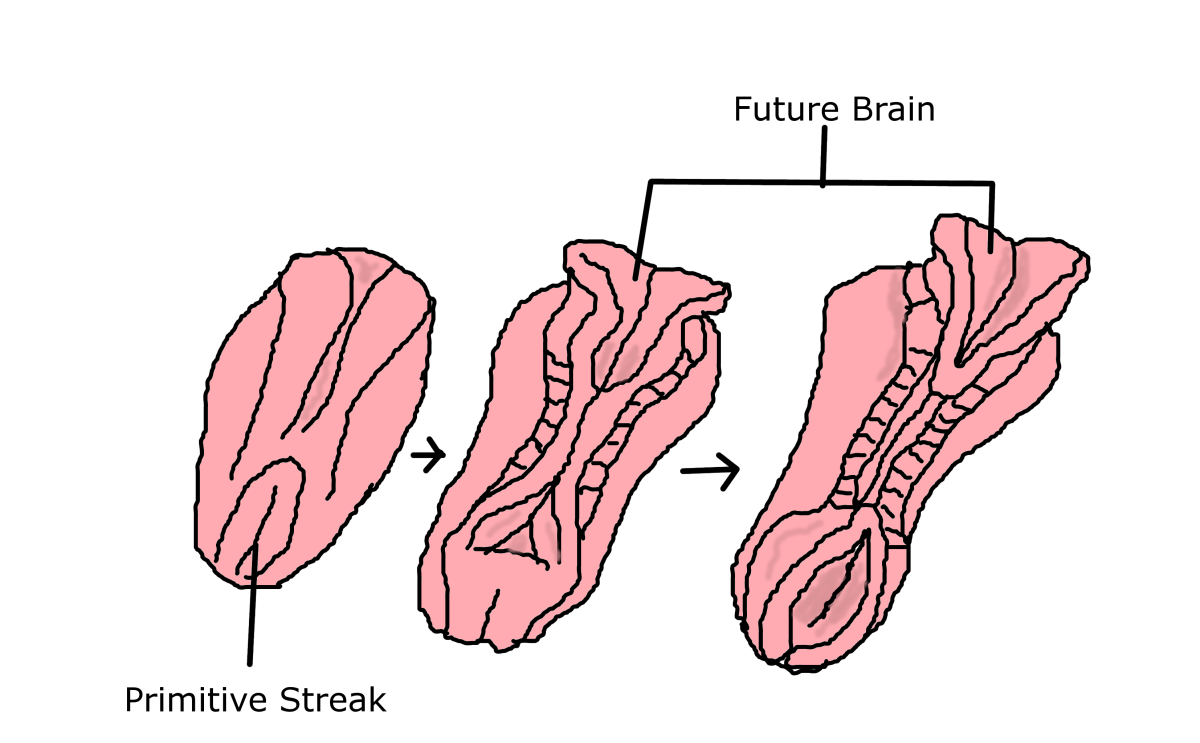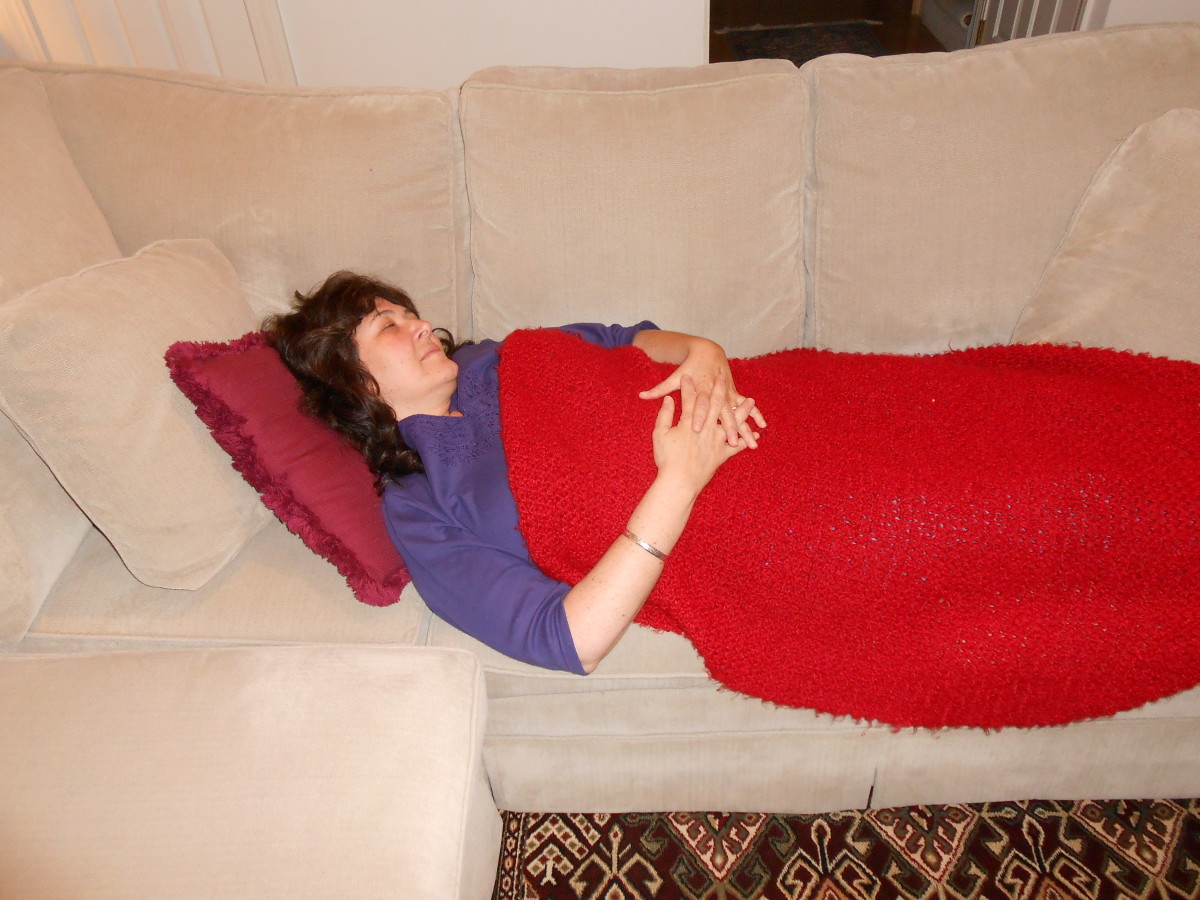- HubPages»
- Health»
- Women's Health»
- Pregnancy
When Miscarriage Happens

It Happened to Me
My feet were up in the stirrups. I was lying on my back, peering at the ultrasound tech between my legs. Then I looked at the screen showing my ten-week pregnancy. I knew it wasn’t good. It didn’t take an ob/gyn to see there was no longer a heartbeat. After informing me I had miscarried, the tech ran out of the room like his hair was on fire. I was crying - devastated. After I put my pants back on, my husband and I were ushered into an exam room where the doctor came to talk to us. She had an ultra-sympathetic look on her face, full of pity. I could’ve punched her. After she said, "these things happen" and a few other generic things, another woman came in to talk to us about it. I don't remember a thing she said, but she had the same look on her face - calculatedly sympathetic. I wanted to punch her too. I couldn’t stop crying. I just wanted to get out of there. I, like so many women who miscarry for the first time, was shocked and in pain. Over the coming weeks, I had the awful task of telling everyone who knew I was pregnant that I miscarried. My mom helped me a lot by telling the family for me. I was depressed. My husband said to me, “I’m afraid you’re never going to get over this.” I looked at him, and very honestly said, “I’m not. Of course I’m not.” I didn’t understand how he expected me to get over it. It was a death. That’s what it was for me and for a lot of other women who badly want children and miscarry. I did get better, though. I rallied, and we tried again... and again. By the time I was thirty, I’d had no fewer than four miscarriages. I had changed doctors, seen a several specialists, and was considering surgery to have the abnormal septum in my uterus removed, even though no one seemed to think that was the problem. I was more than upset about all this. I was panicked. I felt I was having a perpetual anxiety attack about the prospect I might never have children. We talked about adoption. My husband didn’t want that. While we both agreed from the get go we wanted kids, he didn’t seem to need them the way I did. I had to be a mother to someone, one way or another. We divorced the year after I turned thirty. It wasn’t the miscarriages that did it, but I’m sure that didn’t help. What I want you to know if you’re reading this and have had a miscarriage is you’re not alone, though you may feel that way. There are people out there who know how you feel. And as agonizing as it can be, you can get through it. If you know someone who has miscarried, please read on, and learn a few things you might do to help.
What Not to Say
- It's all a part of God's plan.
- Everything happens for a reason.
- You'll get pregnant again.
- At least you weren't that far along.
- Is there anything I can do to help?
- At least you have your other child/children.
What to Say
- I'm so sorry.
- I can't imagine how hard this is for you.
- I had a miscarriage once.
- Do you want to talk about it?
- Let me make you dinner.
The Things People Say
Well-meaning people will say things to you, like "It's all a part of God's plan." Maybe it will make you feel better, but for me, it elicited that same punch-in-the-face response I had with my doctor. I didn't care whose plan it was. All I knew is I'd had something so precious, something I wanted so badly it hurt, ripped away from me. I didn't want to hear, "everything happens for a reason." What did make me feel a little better is all the women who came out of the woodworks to tell me they too had miscarried at some point. It's not something people talk about, because it hurts, but I had friends, family members, and one very good friend of my mother tell me they'd had miscarriages. I was shocked at how many women I knew, and knew well, who'd miscarried. The fact that these women all had children eventually comforted me, and it made me feel much less alone in my pain.
The other thing that surprisingly helped was this: a casual friend I didn't know well left a gift bag with some bubble bath and lotion in it on my porch. The note said, "I know this isn't going to fix things for you, but maybe it will at least help you relax." I was so grateful for her acknowledgement of my pain and that she wanted to help in some small way. I took a bubble bath, and I did feel a little bit better. Another friend brought me a bottle of wine and a pint of ice cream. He seemed to feel awkward about it and nervously admitted he knew it wasn't going to solve my problem, but I ate the ice cream and drank the wine and talked about what I was going through - even vented my irrational anger at all the Christmas cards on my fridge from friends with scads of smiling children on them. The mere fact that this friend wanted to do something for me to help made me feel a little less horrible. If you know someone who's recently miscarried, my advice, even if you can't identify with their situation, is to do something. Send a small gift or just say ,"I'm so sorry." Don't ignore it. We want people to acknowledge what we're going through is real and painful. What exactly you do or say - send a note or visit in person and offer to listen - depends largely on how close you are to the person.
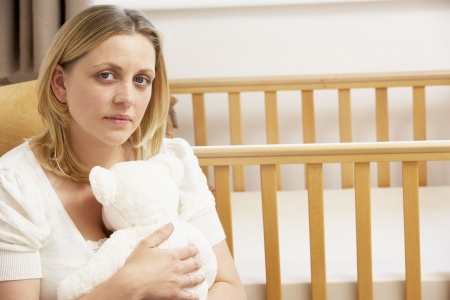
Online Miscarriage Help
- Miscarriage, Stillbirth, & Infant Loss Support - BabyCenter
A place for all bereaved parents to share their stories. We are here to offer compassionate support though out your journey to healing after any loss of a pregnancy, stillbirth or Infant death. We like to think this is a good place to start to heal. - The Bump
This board is intended to be support for those who have gone through a pregnancy loss. - CafeMom
CafeMom is the meeting place for moms. Moms come to CafeMom to connect, give and get advice, be entertained, and make friends.
Talking About It
Whether you've had one miscarriage or multiple, it helps to talk about it. Whether it's to a friend, your husband, or a therapist, just voicing your pain and your fears for the future will make you feel a little less awful. It's part of feeling not so alone. I found a group online for women who had miscarried and "talking" with those ladies on my computer sped my mental road to recovery immensely. As for telling everyone you had a miscarriage, you're going to have to at some point if they knew you were pregnant. Don't feel like you have to do it personally, though, if you don't want to. Have a close family member or friend do it for you, or even send a mass email, so you can do it all at once and not have to relive your pain over and over again to separate people in person. I also wrote in my journal a lot to vent my stronger feelings around the time of my miscarriages. That way, I could get it out without worrying about how crazy I sounded.
Miscarriage Statistics
-
Approximately 1 in 4 pregnancies end in miscarriage.
-
Approximately 75% of all miscarriages occur in the first trimester.
-
An estimated 80% of all miscarriages are single miscarriages. The vast majority of women suffering one miscarriage can expect to have a normal pregnancy next time.
(According to hopexchange.com)
Why Did This Happen?
Try to let go of the "why." It's the number one question on everyone's mind when miscarriage happens: "Why did this happen?" You can do all the research you want, and go to all the doctors in the city, but nine times out of ten, no one can tell you the answer. Oftentimes, there's a genetic abnormality in the newly joined egg and sperm that causes a pregnancy to terminate, but you don't know for sure. I read at least four books on miscarriage. They were full of information, but none of them told me what I really wanted to know: "Why did this happen to me?" And none of them assuaged my fear I would never have children. I spent a lot of that reading time looking at the page through a blur of tears. I finally realized I needed to stop reading. It was just prolonging my pain. Reading about others' experiences with miscarriage can help you feel a sense of community with those women, but there comes a time - and you have to pay attention to your own heart and mind to know when - the reading begins to remind you of your pain, instead of dampening it. You have to realize some point you're never going to know why, and then let it go.

Perinatology:
A subspecialty of obstetrics concerned with the care of the fetus and complicated, high-risk pregnancies. Perinatology is also known as maternal-fetal medicine.
In addition to four years of residency training in obstetrics and gynecology the maternal-fetal medicine subspecialist has received two to three years of education in the diagnosis and treatment of disorders of the mother and fetus. The maternal-fetal medicine specialist typically works in consultation with the obstetrician.
(According to perinatology.com)
Consider Your Doctor
Consider changing doctors. Miscarriage is not your doctor's fault, so changing doctors won't solve your problem, but if you don't feel comfortable, jump ship. When I felt my ob/gyn didn't know enough about my particular situation and had one foot out the door the whole time she was in the room with me, I left. I did some research and found a doctor who knew a lot about high-risk pregnancy and never seemed to be in a rush when he saw me. It is important your doctor genuinely recognizes your unique situation and tailors his advice and treatment to you specifically, not relying on a canned, one-size-fits-all-patients approach.
See a specialist. Even though fertility wasn't my problem, I nagged my ob/gyn into referring me to a fertility specialist who also dealt with miscarriage. And even though all the doctors I'd seen said the septum in my uterus wasn't the problem, Dr. Vaughn volunteered to remove it, with the caveat that it might not fix anything, but it was worth a try. You've got to be your own heath care advocate. If you have a nagging feeling there's something else to know, see a doctor who specializes in fertility issues or perinatology.
Grieving and Moving On
Allow yourself to grieve for a while. How long is different for everyone. Maybe it's a day, maybe it's a year, but after you have grieved, tell yourself you will have children some day. In this day and age of technology and adoption, if you really want children, you can have them. Dedicate yourself to that thought.
Miscarrying once or multiple times can make subsequent pregnancies stressful. It's hard to relax and enjoy your "good news" in the first trimester, if you're worried about having to relive the nightmare of miscarriage. You may feel cheated that you don't get to enjoy your pregnancy like everyone else does. There's no fix for this, but you can manage it some. It's about relinquishing the idea you have control over what happens. Take good care of yourself, see your ob/gyn and do all you can to make your body a good place to grow a baby. Beyond that, it's up to fate or chance, and it's out of your hands. If you can manage that - and it's no small feat, believe me - you may not reclaim a feeling of unabated joy during pregnancy after miscarriage, but maybe you can relax a bit, assuage some of your anxiety, and find a little peace.
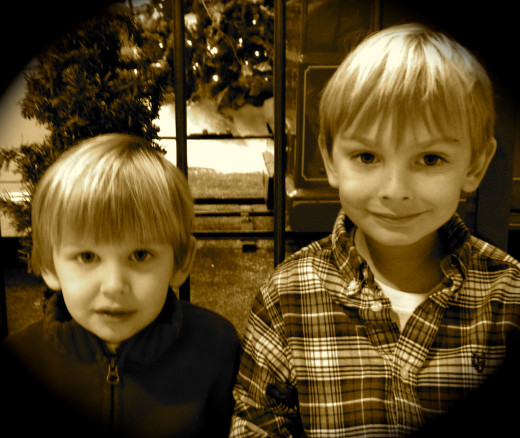
You Can Get Through This
Since I got pregnant that very first time, I've been through five first-trimester miscarriages, a divorce, a marriage, and finally, at long last, two successful pregnancies resulting in my beautiful boys. I am grateful beyond words for those two kids. They were hard won. And I am relieved I never have to be pregnant again - wondering and worrying the whole time if I'm going to get to keep this one. It was a long, hard road, and it is difficult to find comfort when you are in the thick of it, having miscarriage after miscarriage, but know you will survive. Even if you can't see how at this moment, know you are strong and you will get through this. Find the right doctor, take good care of yourself both physically and mentally, talk to someone about your pain and fear, and do your best to let go of the rest of the things over which you have no control. Above all, know you are not alone.
For More Information on Miscarriage
- Understanding miscarriage| BabyCenter
Find out how common miscarriages are, when and why they're most likely to occur, and how to cope if you've had one.


